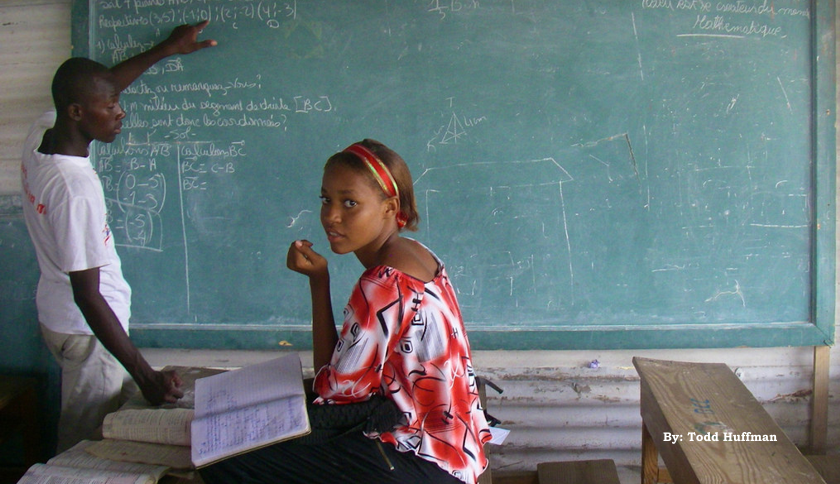Many Americans believe that the major problem within public education is the lack of focus within the administration of a school. They even go so far as to blame the teachers for not providing the adequate time and skills needed for their child to grow and learn on a day-to-day basis. This type of mentality is wrong. As much as we can over analyze the various policies and red tape that go on behind the scenes in these schools, it is imperative that we become more aware and cognizant of the overarching problem that has plagued our schools for years, poverty.
Poverty, in itself, is a very uncomfortable topic. It is a dark cloud that looms in the backyard. It is a whisper that passes by individuals who, rather than confront it, tiptoe around the idea whenever they hear it brought up. But, like it or not, it is a conversation that we need to start having. For many of our schools, especially those that are failing, poverty is right behind it. Many of these well deserving students are held back from incredible opportunities to grow because of lack of funding or lack of resources. This should not happen.
But why is it happening? Why is it a problem?
More than 16 million children are growing up in poverty, meaning that 22% of all children live in families with incomes below the federal poverty level of $23,550 a year. Research has shown that children living in poverty have a higher number of absenteeism and dropout rates than those coming from middle class or higher.
Now how does this affect the classroom, and how can we address it as educators?
Lacking a Strong Foundation
For our students, children who grow up in low socioeconomic conditions typically have a smaller vocabulary than middle or higher-class children do, which increases the risk for academic failure. Much of this attributes to lack of exposure. Whether the words are spoken or read, low socioeconomic households will in most cases not be able to provide their child with that elementary foundation. In the classroom, this lack of exposure can impact various lesson plans and achievement for both the teacher and the student. To resolve this type of problem, educators should try and incorporate vocabulary practice on a daily basis. More exposure to new and unique words can enrich the student in successful ways.
Student-Teacher Relationships
Many teachers, especially new teachers to the field, find many students in low-income areas to be behaviorally difficult and inattentive to the work. It is easy to blame the student, but we need to understand their background and their stories. One reason why many students seem unmotivated toward schoolwork is a lack of hope or optimism related to their outside problems.
Low socioeconomic students often deal with problems bigger than themselves. Whether they are financial hardships or absent guardians, these types of negative problems can take a toll on the mentality of the student, causing them to act in a very brash and hasty way.
Disruptive home relationships often create mistrust in students. Feelings toward parent or guardian figures that have often failed students at home can be projected onto adults at the school. Classroom misbehaviors are likely to increase because of these at-home instabilities.
One thing a teacher can do to aid the situation is to build a relationship with the student. Establishing a relationship with the student can benefit you as well as the overall classroom. In addition, providing positive reinforcement can give the child the necessary confidence to perform on an academic basis. Understanding, listening, and talking with a child can provide you a strong advantage, especially later down the line.
Performance on Assessments
Studies have shown that children from lower socioeconomic background often perform below those from higher socioeconomic backgrounds on state exams. Many students coming from specific communities are found to struggle with core subjects such as reading, math, science, etc. In addition, many of the schools that the students attend lack the necessary resources and teachers to provide them the foundation to develop these core skills. A school can help nullify this problem by strategically analyzing the strengths and weaknesses of each of their students. By having this type of data, a teacher is able to break down lessons so that their students can be successful.
There are no easy solutions. We must be willing to admit there is a problem and openly discuss the issue. Government cannot solve all of our problems. Poverty must be challenged community by community, neighborhood by neighborhood, classroom by classroom and home by home. Together we can inspire, and we can identify needs and marshal resources to meet the challenge. Together we can defeat the issue of poverty.
##
JC Bowman is the Executive Director & Mike Sheppard is Associate Director of Professional Educators of Tennessee, a non-partisan teacher association headquartered in Nashville, Tennessee. Follow JC Bowman on Twitter @jcbowman.
Permission to reprint in whole or in part is hereby granted, provided that the author and the association are properly cited.





